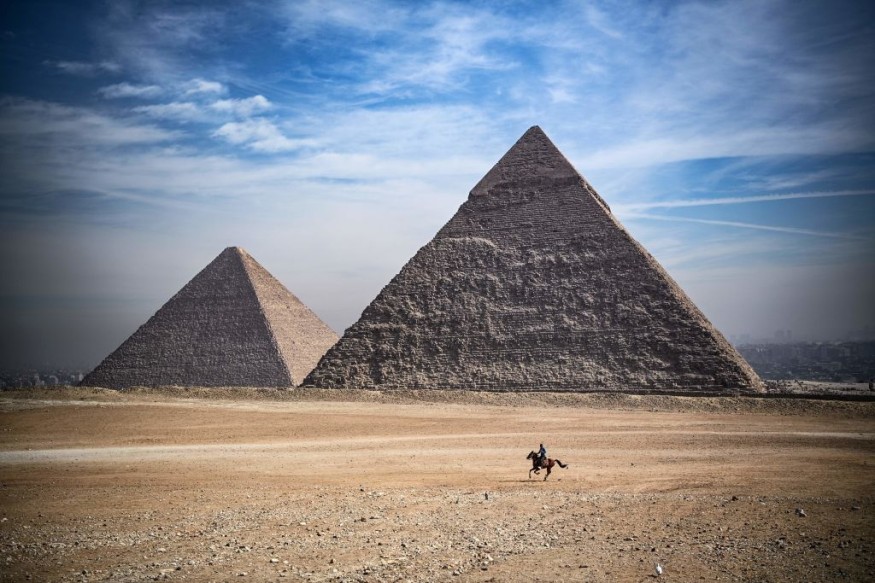An archaeologist attempts to use a simple concept to explain the secret of the perfect alignment of the great pyramids of Egypt. He suggests that the planet's position around the Sun could have aided ancient Egyptians in building these structures with an extraordinary alignment without using modern tools.
IFL Science reported that the Great Pyramid of Giza, together with another pyramid in the same location and the other one at Gashur, have amazing alignment along with their cardinal points. But it also left experts struggling to explain how it was possible. Perhaps it was one of the great puzzles for centuries that researchers have failed to solve.

A man rides a horse in front of the pyramids of Khufu (Cheops) (L), Khafre (Chephren), at the Giza pyramids necropolis on the southwestern outskirts of the Egyptian capital Cairo, on January 26, 2021.
Ancient Egyptians Used Autumnal Equinox to Build the Great Pyramids
Archaeologist and engineer Glen Dash explained that three great pyramids are remarkably aligned with an accuracy of better than four minutes of arc or one-fifteenth of one degree, which seems impossible in an era when drones are not available.
Although many theories point to the polar star to align the pyramids, it has never been clear how ancient Egyptians used it. But in Dash's 2017 paper, titled "Occam's Egyptian Razor: The Equinox and the Alignment of the Pyramids," published in The Journal of Ancient Egyptian Architecture, he described a simpler way that might help ancient Egyptians build the pyramids.
He said that Egyptians roughly 4,500 years ago could have used the autumnal equinox to achieve perfect alignment. The equinox happens twice a year when the plane of the equator passes through the center of the Sun's disc, in which the length of day and night becomes almost equal.
He experimented on this theory on Sept. 22, 2016, using a gnomon, which is like the sundial that has a vertical rod in the ground that projects the shadow. According to Science Alert, Dash used a string to intercept two of the two points of the curve and created an almost perfect line that runs from east to west.
"On the equinox, the surveyor will find that the tip of the shadow runs in a straight line and nearly perfectly east-west," Dash wrote. Moreover, he showed that the degree of error is somewhat counterclockwise, the same as the sight error in the great pyramids.
Dash said that a similar phenomenon would have happened to Egypt during that time, although the experiment was conducted in Connecticut, USA.
ALSO READ: Buried In Time: Another Ancient Pyramid Discovered In Egypt
Did the Ancient Egyptians Use This Method?
Dash told Live Science that ancient Egyptians could have or could have not used the method to align the pyramids. It is not certain whether this or any other past theories were used in the past. But experiments from the past decades suggest that they might have used several methods that utilize the sun or stars to align the pyramids.
Unfortunately, there is no way to verify this because ancient Egyptians did not leave any records or blueprints of the method they used. It is also possible that they used several methods to create a perfectly aligned pyramid.
Dash said that the autumn equinox does have an advantage over other theories because it is simpler either in concept or in practice compared to other methods that require more steps and are more complicated.
RELATED ARTICLE: Two Mysterious Voids Hiding Inside the Great Pyramid of Giza; Powerful Cosmic Ray Scan Reveals
Check out more news and information on Archaeology in Science Times.












